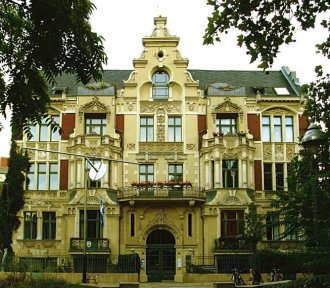 |
The Embassy of Honduras in Berlin |
Contact

Address: Cuxhavener Strasse 14, 10555 Berlin, Germany
Tel.: +49 (0)30 397 497 09
The Ambassador
Amb. Mauricio Bueso
History
Diplomatic relations between the Federal Republic of Germany and Honduras were established on 20th of January 1960. Relations have traditionally been friendly. The emergency relief and reconstruction assistance provided by the Federal Government and private German donors in the aftermath of the 1998 Hurricane Mitch disaster and Germany’s ongoing bilateral, regional and multilateral development cooperation are greatly appreciated by Honduras.
Trade between Honduras and Germany is relatively insignificant and subject to strong fluctuations. According to Federal Statistical Office (DESTATIS) figures, in 2015 German imports from Honduras were worth EUR 413 million and German exports to Honduras EUR 141 million. The main Honduran exports to Germany are coffee (which is also supplied to neighbouring EU countries via Hamburg), fish and citrus fruits. Bananas, tobacco and timber are of less significance. The principal German exports to Honduras are plant, machinery and electrical goods, chemical and plastic products, engines and motor vehicles, iron goods and sheet metal.
With regard to development cooperation, Honduras is an important partner country of German development cooperation. Since cooperation began in 1961, Germany has made available a total of some EUR 440 million for development projects and programmes in Honduras, making it one of the country’s largest bilateral donors along with the United States, Spain, Japan and Canada. No other EU member state, apart from Spain, has provided more funding to Honduras. German development cooperation with Honduras focuses on two priority areas: education and environmental policy (including the sustainable use of natural resources and climate protection). In these areas in particular Germany is seen as an acknowledged and influential partner. Finally, a number of German non-governmental development organisations, such as churches, foundations and associations, are active in Honduras.










